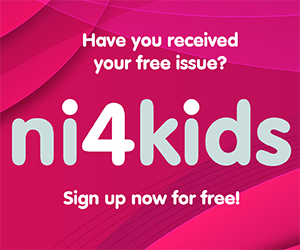Anti-Bullying Week is an annual event in the UK that aims to raise awareness about the bullying of children and young people and highlights ways of preventing and responding to it.
Today (Monday, 13 November) marks the start of anti-bullying week co-ordinated by the Anti-Bullying Alliance. This year’s theme Make A Noise About Bullying encourages everyone to come together to have discussions about what bullying means to us, how banter can turn into something more hurtful, and what we can do to stop bullying.
From April 2022 to March 2023 Childline delivered 8,011 counselling sessions to children and young people across the UK about bullying. 7,077 of these counselling sessions were about bullying in-person, a 2% increase in comparison to the previous year and 934 counselling sessions were about online bullying.
The top concerns where a child spoke to Childline about in-person bullying included: verbal bullying, physical bullying, bullied about difference and being left out. For counselling sessions on online bullying the top concerns included: nasty comments, bullying in group chats, bullying on social networking sites, and being threatened and intimidated online.
Shaun Friel, Childline Director said: “At Childline our trained counsellors hear from children on a daily basis who are being bullied.
“For some, this is taking place at school in the classroom and playground, whereas for others it’s happening online on social media sites and in group chats.
“No matter how or where a child is being bullied, our trained counsellors know that without the right support it can have significant impact on a child’s mental health and wellbeing and many tell us it has left them feeling sad, overwhelmed and lonely. That’s why this Anti-Bullying Week we want to remind all children and young people that if they are being bullied that it is essential that they reach out for help from a safe adult such as a parent, carer, teacher or Childline.
“Childline is always here to be a source of support for children and young people and our counsellors are available 24/7 over the phone and online.”
Martha Evans, Director of the Anti-Bullying Alliance commented: “We know from research that almost 1 in 4 children say they are being bullied frequently, with the situation even worse for those with disabilities or from poorer families. So, it’s important that the victims of bullying behaviour have an adult they trust to turn to – whether that’s a parent or carer, teacher, or a counsellor at Childline.
“This Anti-Bullying Week we urge adults and children to come together to have discussions about bullying, so we all know how to tell the difference between banter and bullying, and how to offer support to those on the receiving end. We can make a difference if we make a noise to stop bullying.”
Advice for children
1. Share how you are feeling with other young people. Childline’s monitored online message boards (childline.org.uk/getsupport) are a safe non-judgemental space where you can speak to other children who are in a similar situation to you about your experiences and feelings. This can help you feel less alone and will give you an online support network that you can turn to.
2. Talk to an adult you trust about the bullying you are experiencing so that you feel less alone and so that adult can support you. This could be a parent, teacher or you can speak to a Childline counsellor on 0800 1111 or online at childline.org.uk
3. Take a break from your device if you are being bullied online and do something you enjoy such as sport, listening to music or art.
4. Remember that bullying is not your fault.
5. Report and block someone if they are sending you messages online that upset you.
For Adults:
Signs that your child may be being bullied online can include:
- Not wanting to go to school or take part in normal activities.
- Getting anxious or angry if you go near their device.
- Feeling withdrawn, upset or angry at home.
- Problems sleeping or eating.
- Having angry outbursts that seem out of character.
- Spending more or less time online than normal.
Signs that your child may be being bullied in-person can include:
- Belongings getting lost or damaged.
- Physical injuries such as unexplained bruises.
- Being afraid to go to school.
- Not doing as well at school.
- Being nervous, losing confidence, or becoming distressed and withdrawn.
- Problems with eating or sleeping.
- Bullying others.
What to do if you think your child is being bullied
- Talk to your child and remind them to come to you with anything that might be making them feel anxious or sad. If your child speaks to you about an experience of bullying that they’ve had online or in person, try to remain calm and don’t overwhelm them with questions. Reassure them that it will be ok, and that you’re always there for them.
- Show them how to report or block a message that they’ve received from someone online that upsets or worries them.
- Don’t take their device away if they’ve had a negative experience online. Although you may want to do this, it may make them feel like whatever has happened is their fault. Instead, suggest they take some time away from the app they received the messages on and do another online activity they enjoy such as playing a game.
- Know where you can get further support. Adults can call the NSPCC Helpline for advice on 0808 800 5000 or email help@nspcc.org.uk. There is also further advice on the NSPCC website (nspcc.org.uk).





